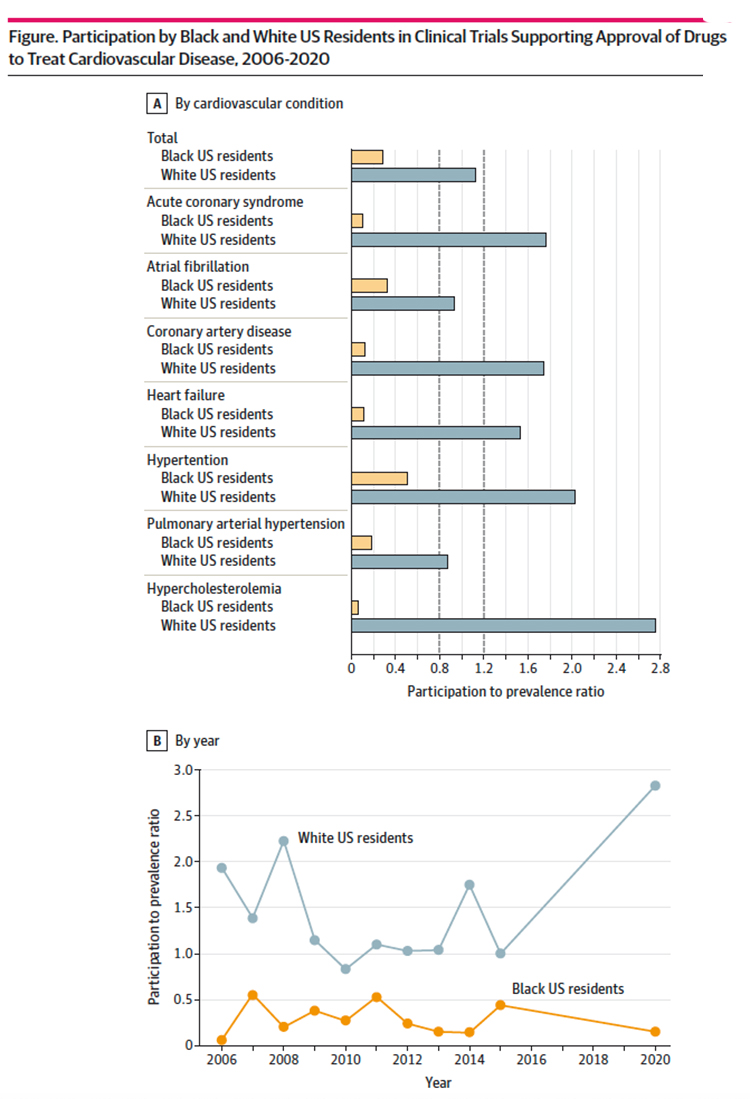The approval of medications is based on scientific studies of their efficacy. But how well a drug works is often measured by what degree you resemble the population used in the studies. Seat belts are not properly fitted for women because they were never used in safety testing. The same holds for medications where genetics and environmental factors may be critical but underappreciated variables. A new study looked at 24 new cardiovascular drugs approved by the FDA between 2006 and 2020. The researchers determined the number of Black versus Caucasian participants based on the racial prevalence of the disease being treated in the US. Simply put, if 40% of individuals with Disease X are Black, was the percentage of Blacks participating in the study more or less – how well aligned was the study population with the population at risk?

As the upper graph shows, the alignment was not good. White US residents were in general over-represented, Black US residents under. And that second, lower graph shows that despite significant efforts to recruit minority participants, it is a task that is proving far harder than anticipated. There are many similar studies showing gender disparities in research.
As with vaccine hesitancy, there are a number of reasons why minority participation in medication trials is low. Trust and access are foremost. Access includes the need for studies to reach out to physicians who care for minority patients and reaching out to these patients directly. More studies are being done over the Internet, which does broaden their geographic reach. Still, they may inadvertently create disparities among those with and without the financial means to have online connectivity.
Source: Participation of Black US Residents in Clinical Trials of 24 Cardiovascular Drugs Granted FDA Approval, 2006-2020 JAMA Network Open DOI: 10.1001/jamanetworkopen.2021.2640




